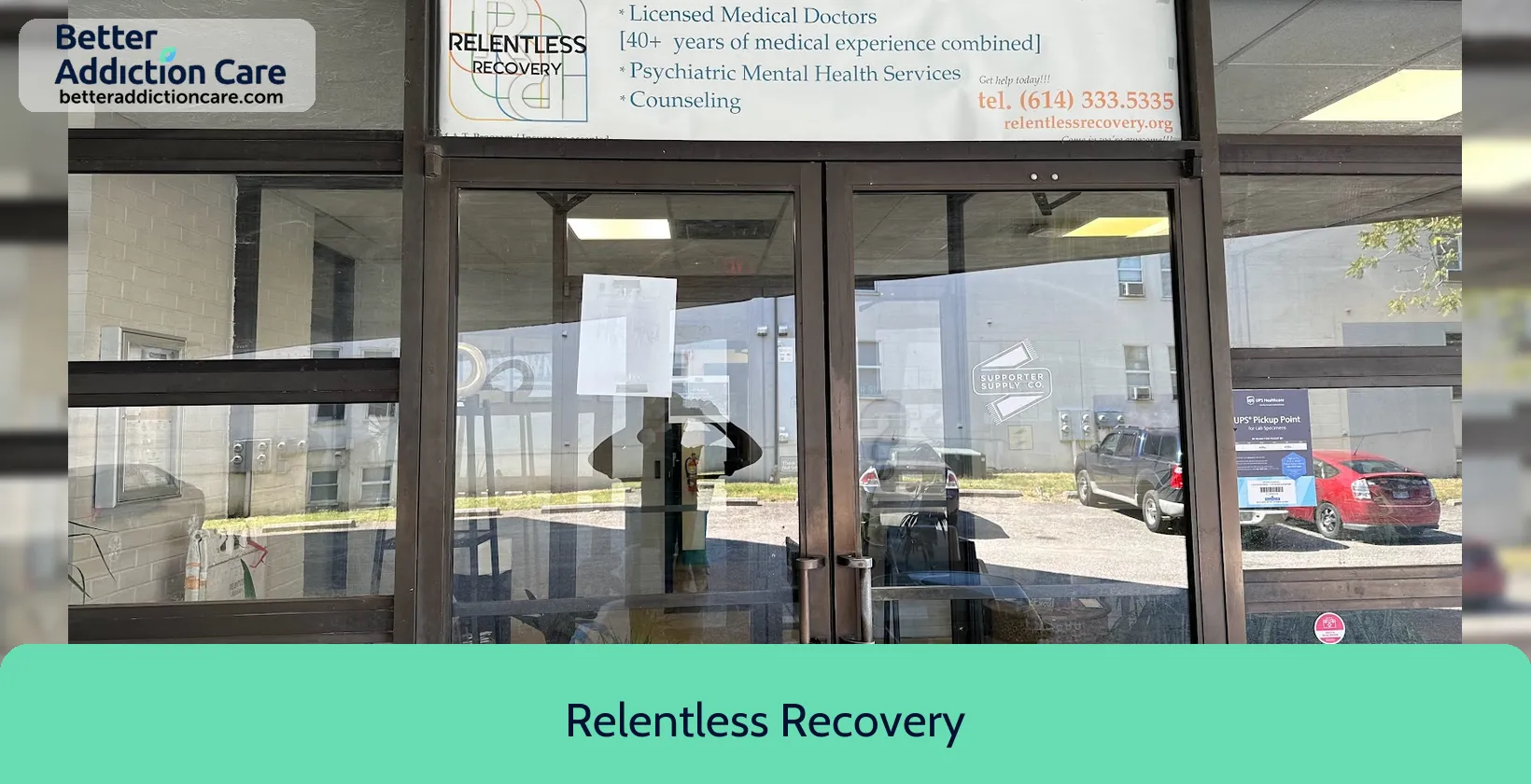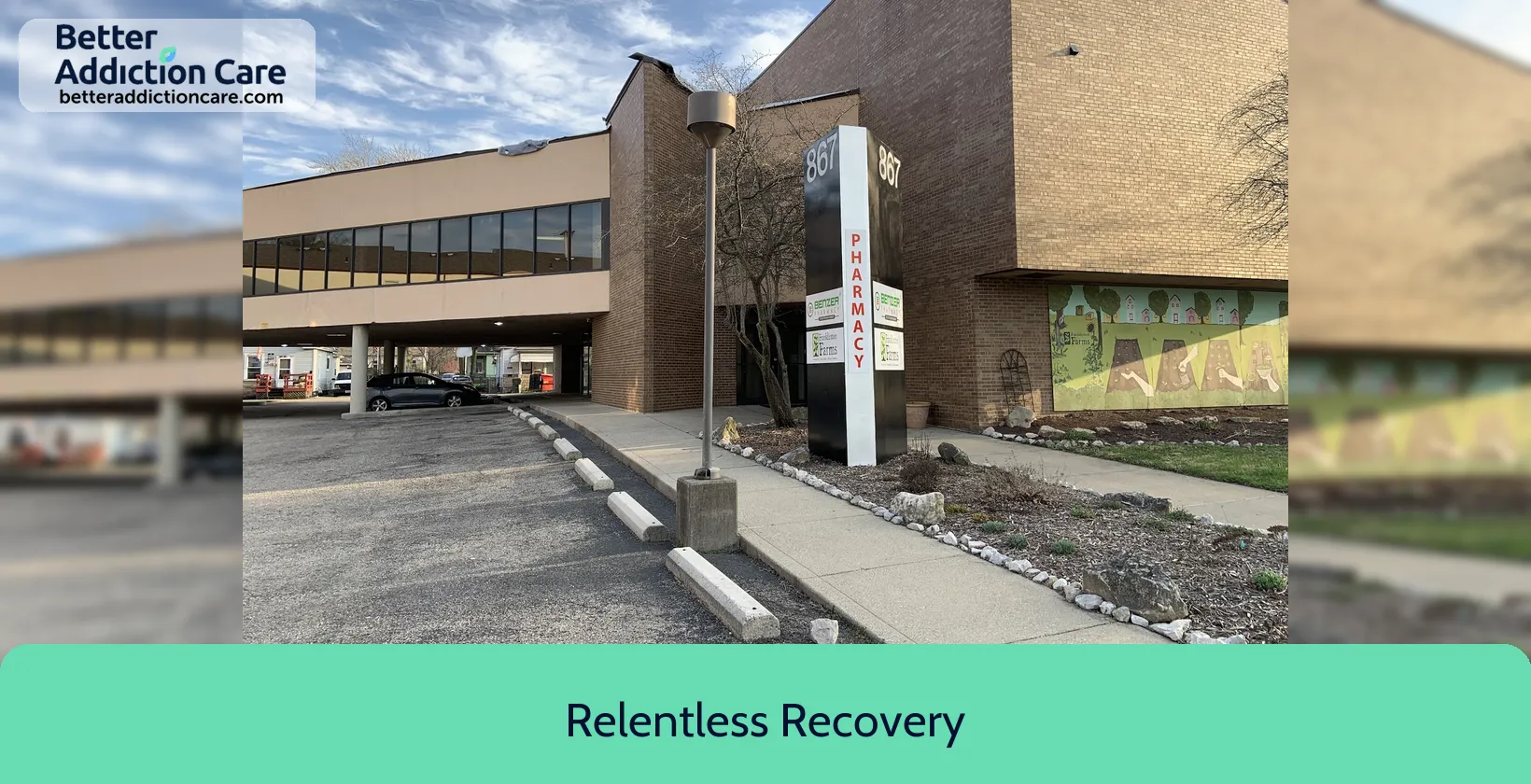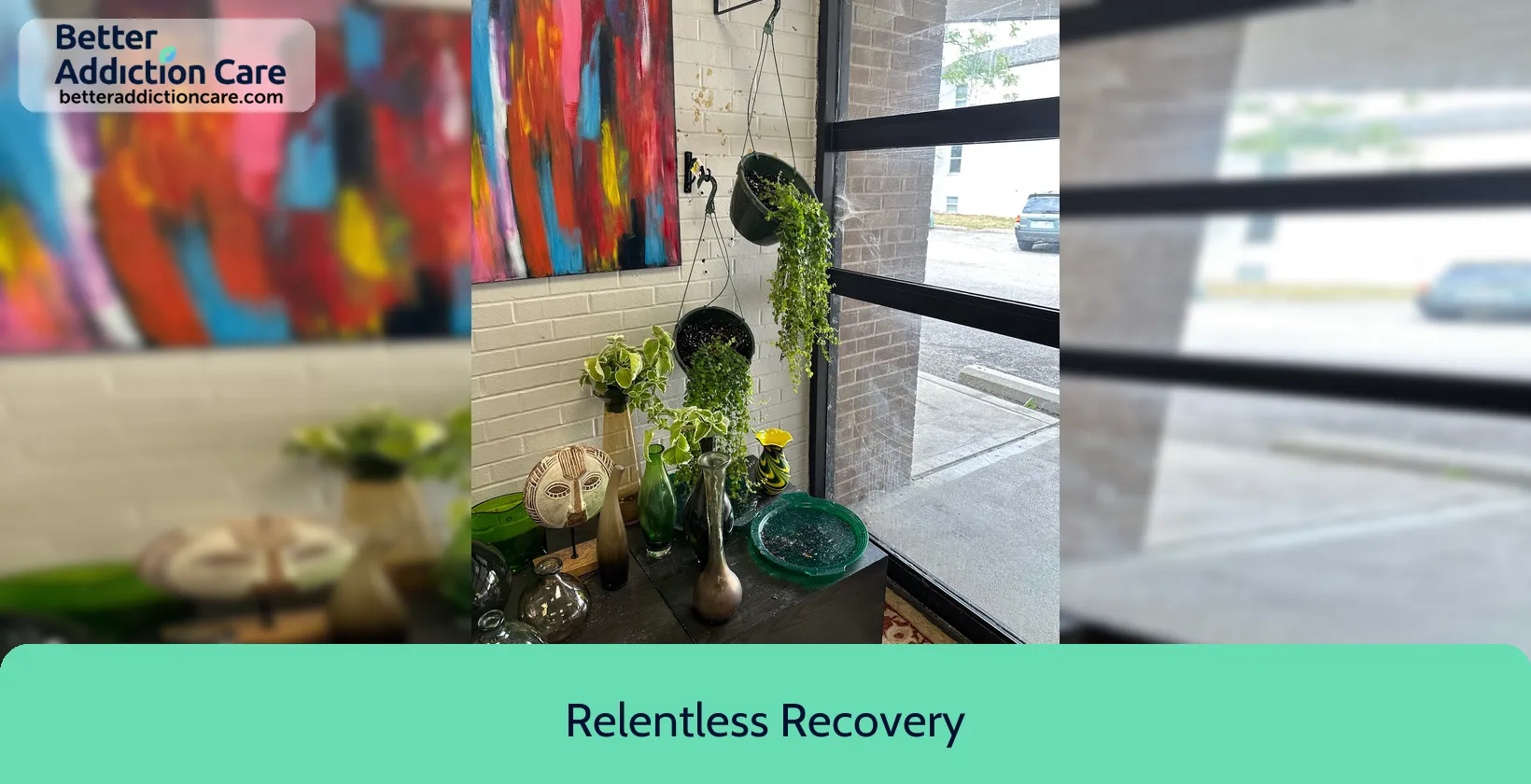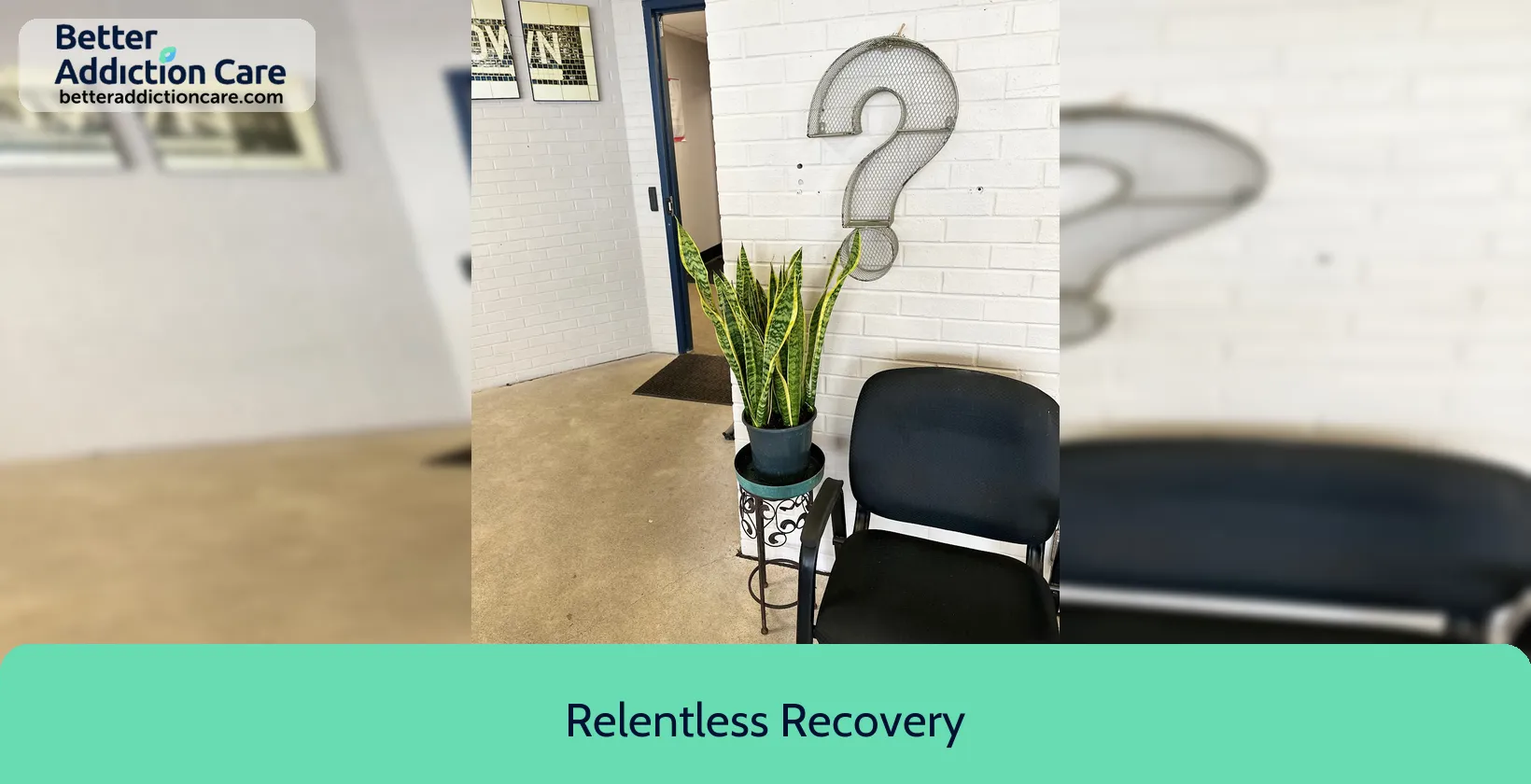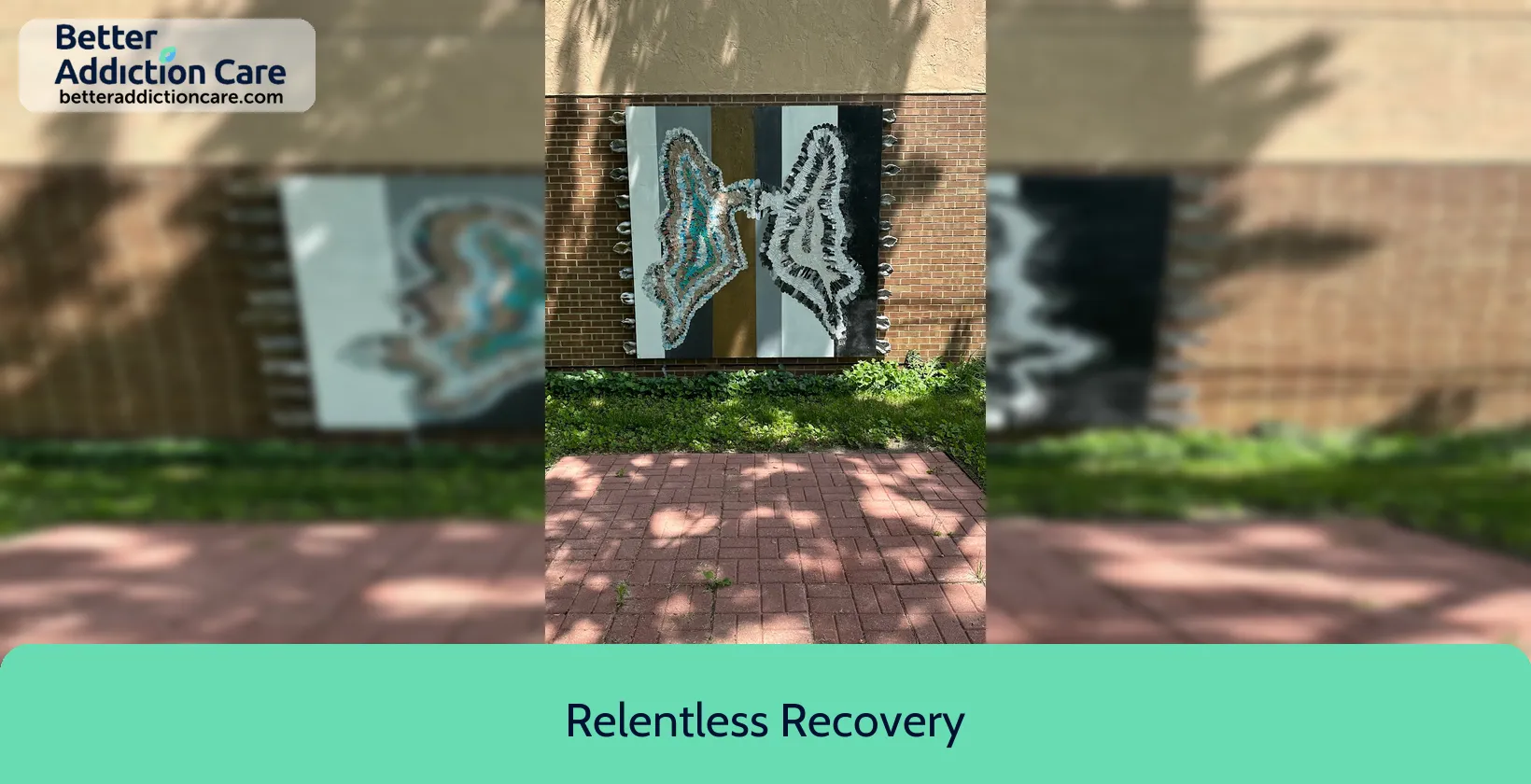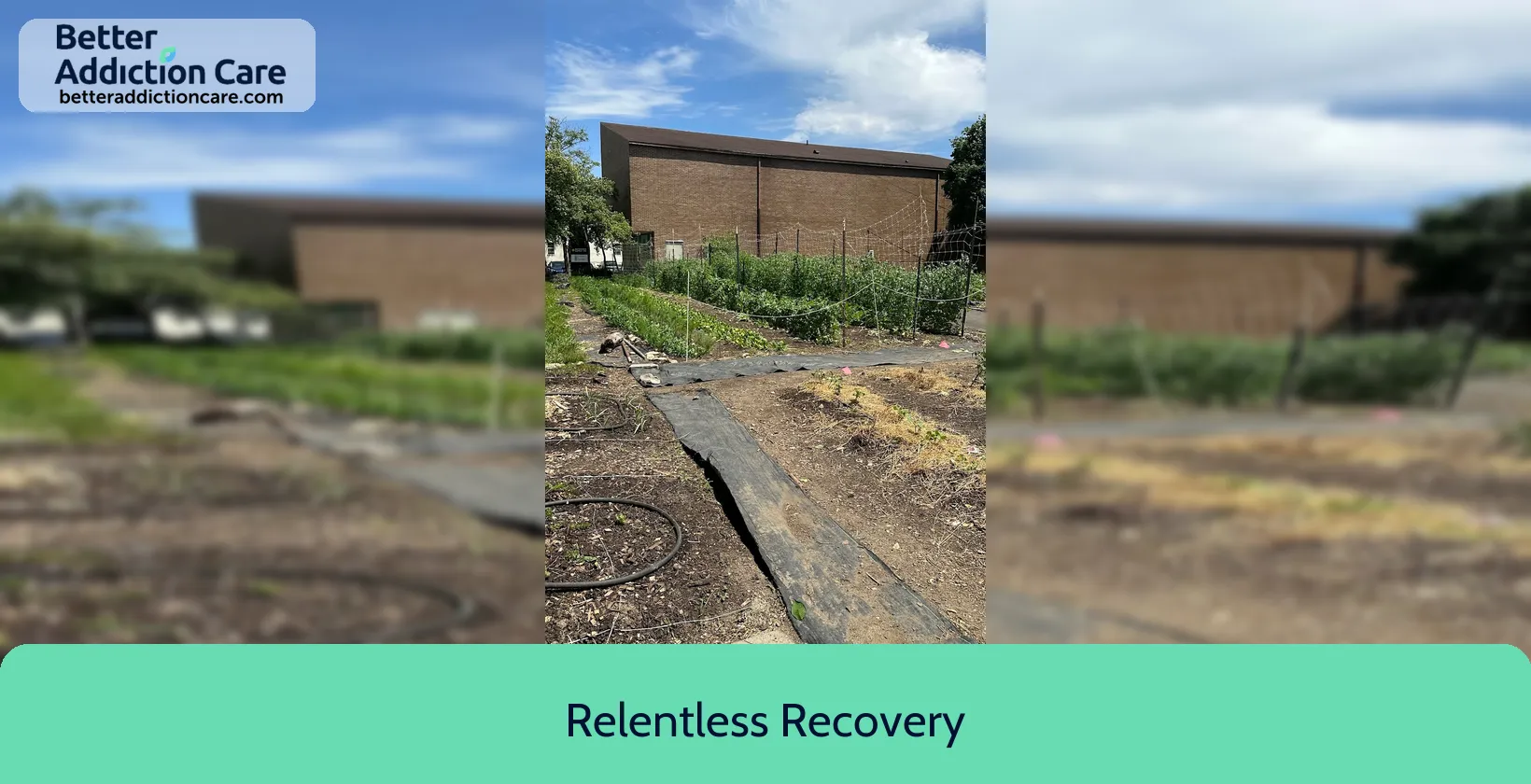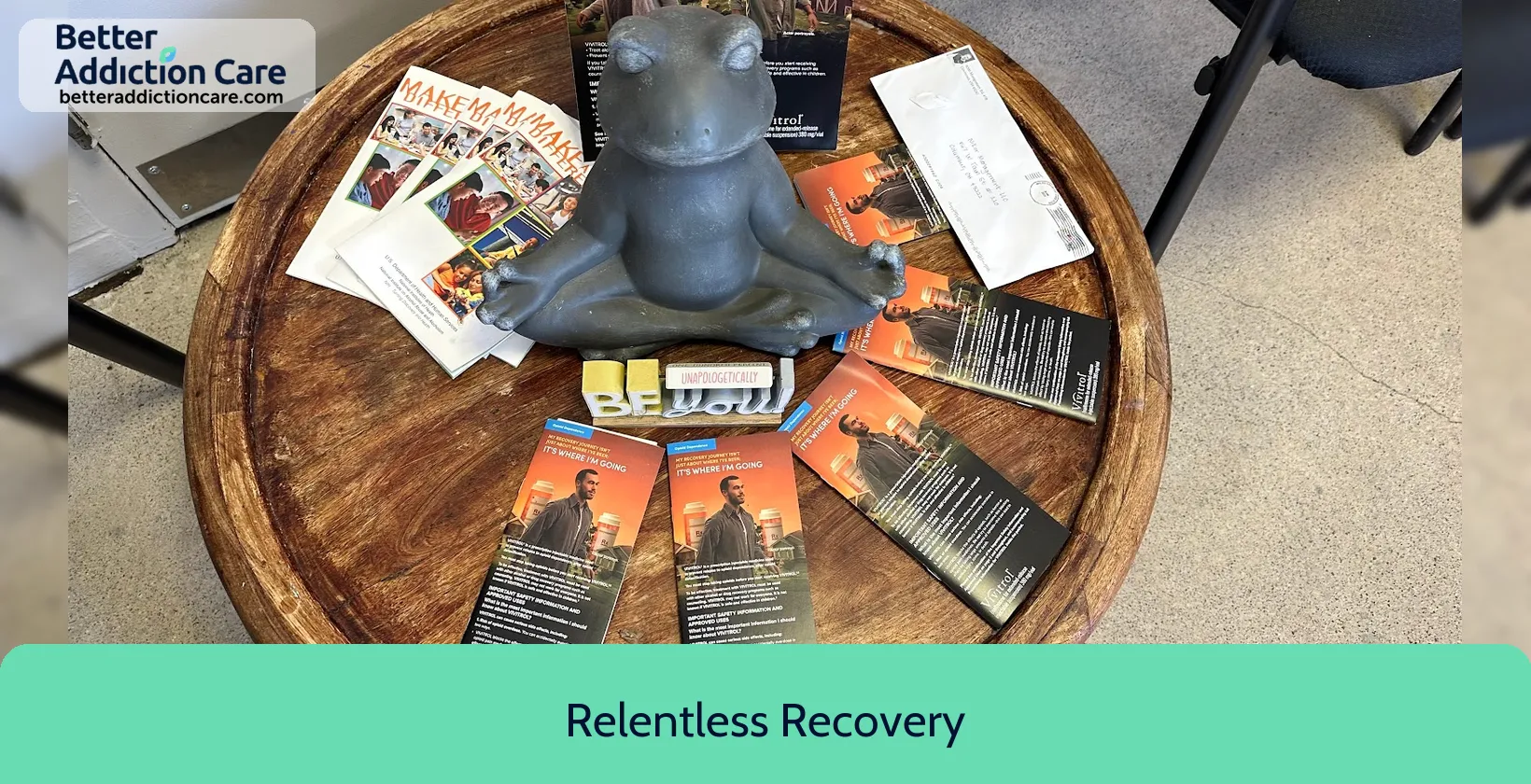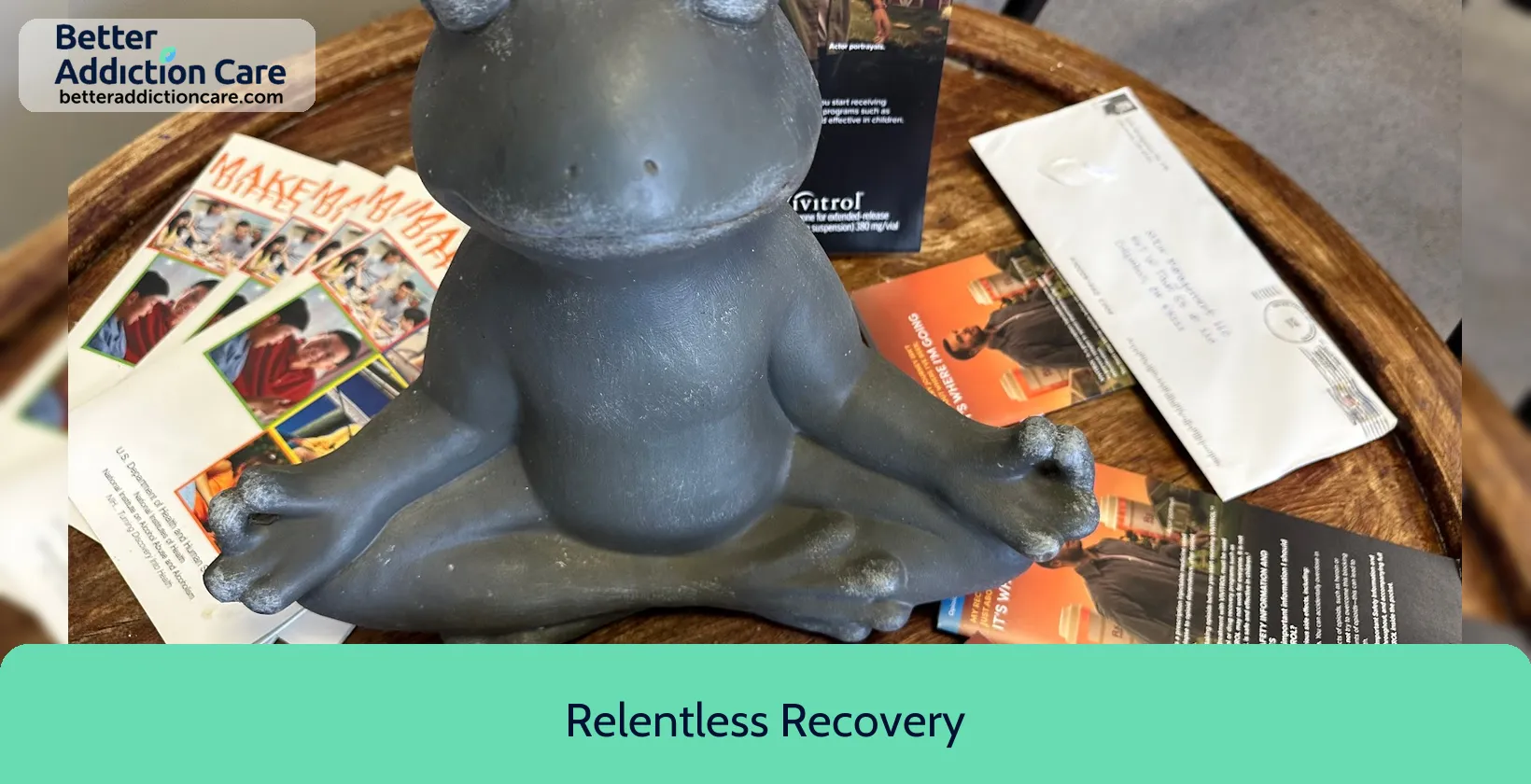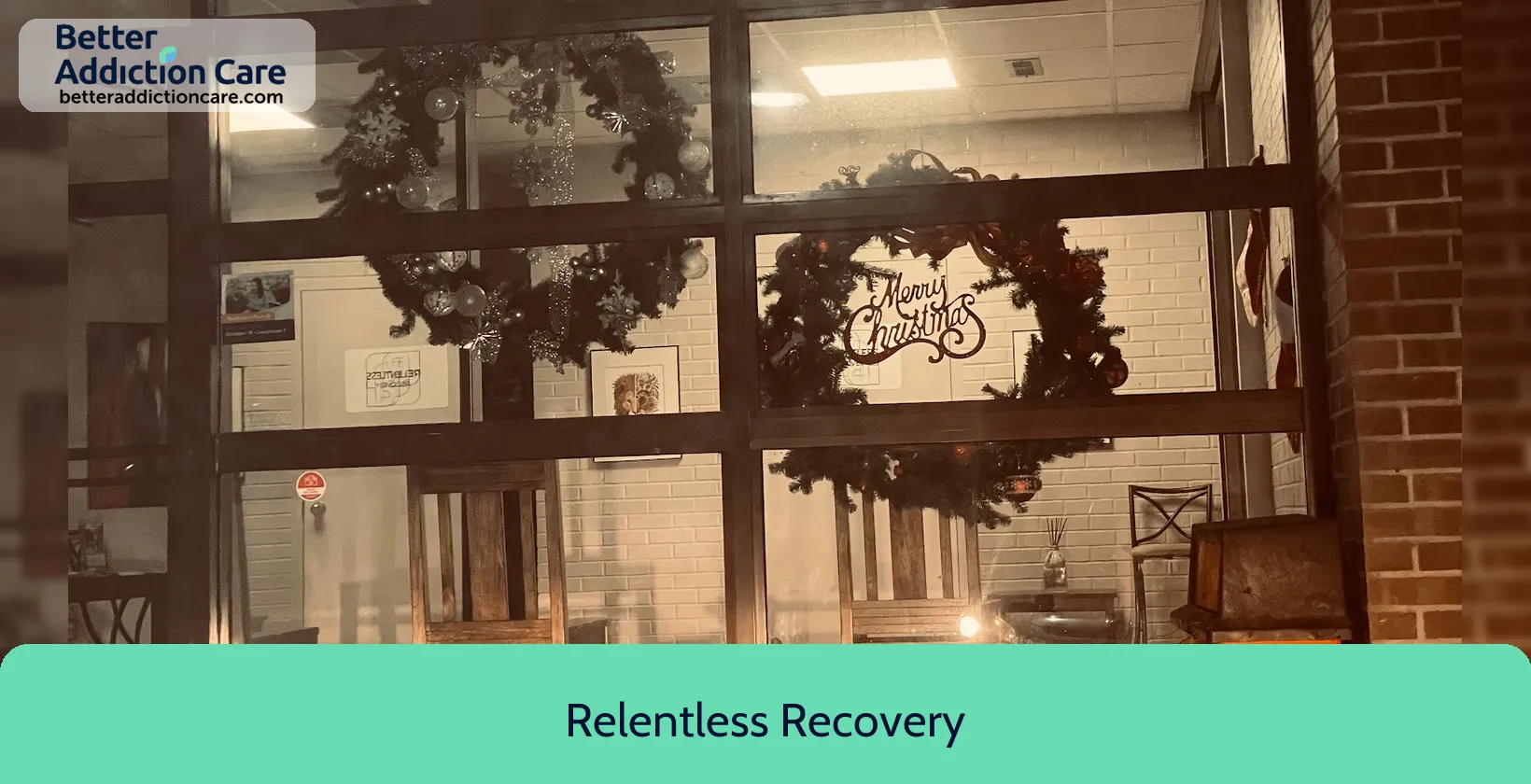Relentless Recovery
Overview
Relentless Recovery is an accredited substance abuse treatment center that provides outpatient detoxification, for men from 18+ years of age. As part of their special programs, Relentless Recovery treats clients with co-occurring mental and substance use disorders, criminal justice (other than dui/dwi)/forensic clients, and clients with hiv or aids. To help patients achieve sobriety, Relentless Recovery provides treats alcohol detoxification, benzodiazepines detoxification, and cocaine detoxification.. Afterward, patients receive cognitive behavioral therapy, telemedicine/telehealth therapy, and substance use disorder counseling during treatment. Relentless Recovery is located in Columbus, Ohio, providing treatment for people in Franklin County, accepting cash or self-payment, medicaid, and medicare.
Relentless Recovery at a Glance
Payment Options
- Cash or self-payment
- Medicaid
- Medicare
- State-financed health insurance plan other than Medicaid
- Private health insurance
Assessments
- Screening for tobacco use
- Comprehensive substance use assessment
- Interim services for clients
- Outreach to persons in the community
- Screening for mental disorders
Age Groups
- Young adults
- Adults
Ancillary Services
- Case management service
- Integrated primary care services
- Suicide prevention services
- Domestic violence services, including family or partner
- Early intervention for HIV
Highlights About Relentless Recovery
7.60/10
With an overall rating of 7.60/10, this facility has following balanced range of services. Alcohol Rehabilitation: 8.00/10, Drug Rehab and Detox: 8.46/10, Insurance and Payments: 6.00/10, Treatment Options: 7.94/10.-
Drug Rehab and Detox 8.46
-
Alcohol Rehabilitation 8.00
-
Treatment Options 7.94
-
Insurance and Payments 6.00
Accreditations
Federally Qualified Health Center:
Federally Qualified Health Center (FQHC) accreditation is a process of evaluation and recognition by the federal government for community health centers that provide comprehensive and accessible healthcare services to underserved populations. FQHC accreditation is essential for centers to receive federal funding and to ensure that they meet standards for quality, patient-centered care.
SAMHSA certification for opioid treatment program (OTP):
SAMHSA's Opioid Treatment Programs (OTP) accreditation is a prestigious recognition that signifies a program's compliance with stringent standards and guidelines established by the Substance Abuse and Mental Health Services Administration (SAMHSA). This accreditation demonstrates an OTP's commitment to providing high-quality, evidence-based care for individuals struggling with opioid use disorder (OUD). It serves as a trusted symbol of accountability and excellence, assuring patients, families, and communities that the OTP offers safe, effective, and comprehensive treatment options for OUD.
Drug Enforcement Agency (DEA):
DEA accreditation refers to the process by which a law enforcement agency is recognized by the Drug Enforcement Agency (DEA) as having met specific training, operational, and resource requirements necessary to participate in DEA-led drug enforcement efforts. This accreditation allows the agency to perform DEA-related tasks such as conducting investigations, executing federal search warrants, and participating in joint task forces.
Treatment At Relentless Recovery
Treatment Conditions
- Alcoholism
- Substance use treatment
Care Levels
- Outpatient
- Outpatient detoxification
- Outpatient methadone/buprenorphine or naltrexone treatment
- Intensive outpatient treatment
- Regular outpatient treatment
Treatment Modalities
- Cognitive behavioral therapy
- Telemedicine/telehealth therapy
- Substance use disorder counseling
- Trauma-related counseling
- Smoking/vaping/tobacco cessation counseling
Ancillary Services
Languages
- Sign language services for the deaf and hard of hearing
Additional Services
- Pharmacotherapies administered during treatment
- Mentoring/peer support
- Drug or alcohol urine screening
Special Programs
- Clients with co-occurring mental and substance use disorders
- Criminal justice (other than DUI/DWI)/Forensic clients
- Clients with HIV or AIDS
- Clients who have experienced trauma
- Clients who have experienced sexual abuse
Get Help Now
Common Questions About Relentless Recovery
Contact Information
Other Facilities in Columbus

6.71

6.62

6.65

6.56

6.68

6.68

7.09

6.56
DISCLAIMER: The facility name, logo and brand are the property and registered trademarks of The Center for Family Safety and Heali, and are being used for identification and informational purposes only. Use of these names, logos and brands shall not imply endorsement. BetterAddictionCare.com is not affiliated with or sponsored by The Center for Family Safety and Heali.
